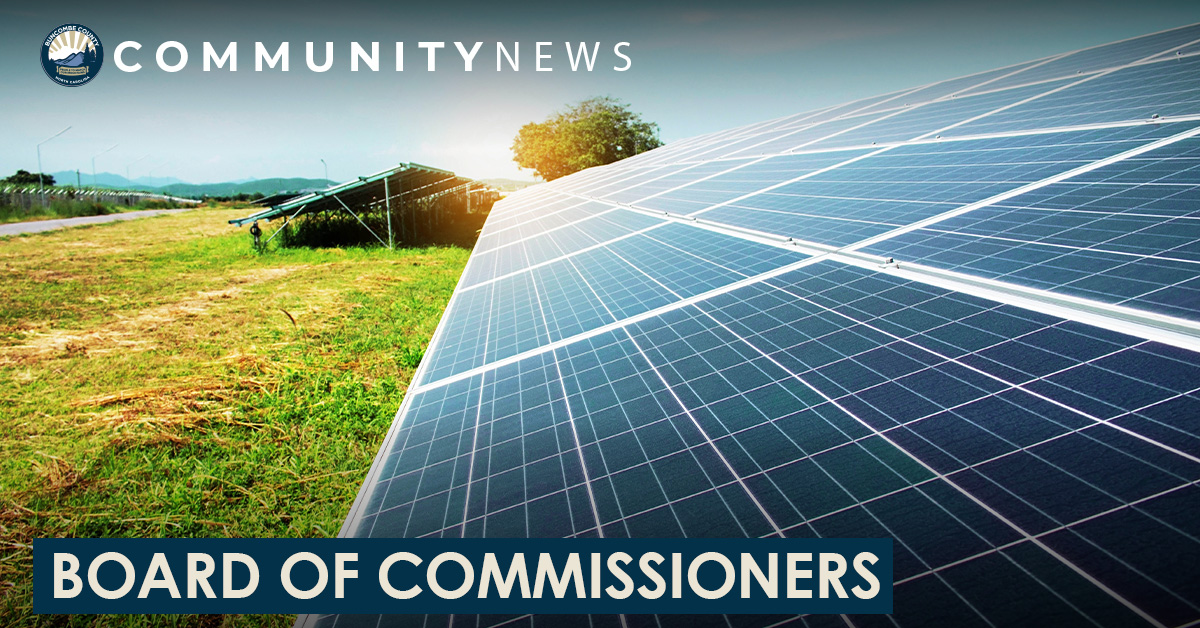This news item expired on Wednesday, October 5, 2022 so the information below could be outdated or incorrect.

Sunny days are ahead as Buncombe County continues its commitment to environmental and energy stewardship as part of its 2025 Strategic Plan. On Oct. 5, the Board of Commissioners approved moving forward with four solar projects, including agreements to install panels at UNC Asheville and the Town of Black Mountain. Overall, the four initiatives will produce more than 300,000 kilowatt-hours (kWh) or roughly enough energy to power 38 homes for a year. The two County installations will be at the East Asheville Library and the firing range at the Public Safety Training Center. The UNC Asheville solar installation will be at the Reuter Center and Black Mountain is adding panels to the Carver Community Center.
“For the two County facilities, these installations will represent an offset of nearly 90% of the electricity used at these buildings,” explains County Sustainability Officer Jeremiah LeRoy. “With the addition of these two facilities, the County will now have 16 total buildings and over 1.4 megawatts of on-site renewable generation powering its highest use facilities.”
The following is a breakdown of the system sizes and projected energy outputs:
- UNC Asheville Reuter Center: 26-kilowatt system with the potential to produce 37,000 kWh annually.
- Black Mountain Carver Community Center: 32-kilowatt system with the potential to produce 42,000 kWh annually.
- East Asheville Library: 85-kilowatt system with the potential to produce 115,000 kWh annually.
- County firing range: 81-kilowatt system with the potential to produce 113,000 kWh annually.
These four projects represent a continued commitment to move the County toward its goal of substantially increasing energy efficiency to help save money and be a leader in environmental stewardship. “An important goal in our Strategic Plan is to reduce greenhouse gas emissions. In conjunction with our ongoing energy efficiency efforts, direct onsite renewable energy is a major step in achieving greenhouse gas reductions,” notes LeRoy. “It means we’re powering our buildings with clean, renewable energy sources and saving taxpayer dollars by reducing long-term energy costs and offsetting the increasing costs of power from the utility provider.”
To learn more about Buncombe County’s clean energy projects, visit our Sustainability Office’s website.